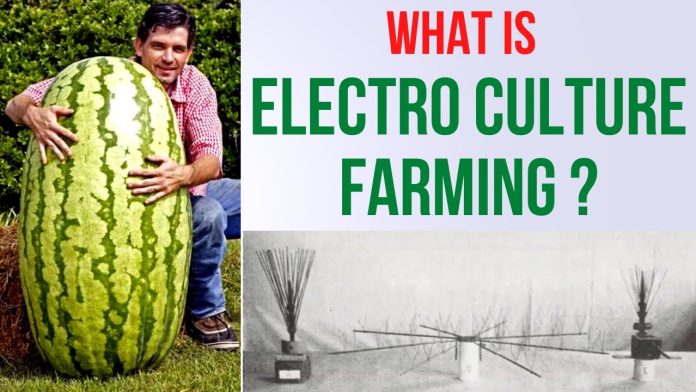Electroculture is an experimental and somewhat controversial agricultural practice that involves using electrical currents or fields to enhance plant growth and development. While there are claims and anecdotal evidence of positive effects, the scientific consensus on electroculture’s efficacy is still debated, and more research is needed to fully understand its mechanisms and benefits.
Here’s how electroculture is thought to work and how it might be applied to growing vegetables in your garden:
1. Root Stimulation: One proposed mechanism of electroculture is that it stimulates root growth. Electrical currents applied to the soil are believed to encourage root elongation, potentially leading to improved nutrient and water absorption by plants.
2. Nutrient Uptake: Electroculture proponents suggest that electric fields can enhance the movement of ions in the soil, making nutrients more available to plant roots. This could result in increased nutrient uptake and potentially higher yields.
3. Seed Germination and Plant Growth: Some electroculture enthusiasts claim that applying mild electrical currents to seeds or young plants can promote faster germination and healthier growth. However, scientific evidence supporting these claims is limited.
4. Pest and Disease Management: There are theories that electroculture might deter certain pests and pathogens. Electric fields could potentially disrupt the behavior of pests or affect the development of plant diseases, but this aspect requires further investigation.
5. Experimentation and Caution: If you’re interested in experimenting with electroculture in your vegetable garden, it’s important to exercise caution and start with small-scale trials. Applying electric fields to soil or plants requires specialized equipment and knowledge to ensure that the electrical currents are safe for both plants and humans.
6. Research and Expertise: Before attempting electroculture, it’s advisable to research the topic thoroughly and consult with experts in the field of agriculture, horticulture, or plant physiology. While there are enthusiasts who claim success with electroculture, it’s essential to base your gardening practices on well-established and scientifically validated methods.
The Copper wire” method
In addition, some proponents of electroculture suggest using a piece of copper winding wrapped around a stick or a piece of bamboo as a simple way to experiment with applying electric fields to your garden soil. This approach is often referred to as “copper coil” or “copper wire” method.
Here’s how you might attempt the copper coil method for electroculture in your garden:
Materials Needed:
- Copper wire or tubing
- Wooden stick or piece of bamboo
- Garden soil
- Gardening gloves (for safety)
Steps:
- Prepare the Copper Coil: Take a length of copper wire or tubing, ideally around 12-18 inches long. Wind the copper wire around the stick or bamboo, creating a coil. Leave a portion of the wire unwound at the ends to serve as a connection point.
- Insert into the Soil: Gently insert the stick or bamboo with the copper coil into the soil near the plants you want to treat. Ensure that the coil is partially buried in the soil while the unwound ends are left above the ground for easy connection.
- Secure the Copper Ends: If the copper wire is not naturally rigid, you may need to secure the unwound ends of the wire to the stick or bamboo to keep them above ground and easily accessible.
- Connect the Copper Ends: Connect the unwound ends of the copper wire to a power source. This can be a low-voltage battery, solar cell, or any other safe and low-power electrical source. The goal is to create a small electric field around the coil.
- Monitor and Observe: Keep an eye on the plants in the vicinity of the copper coil over time. Monitor their growth, health, and overall development. Take notes on any noticeable changes or improvements.
Safety Precautions:
- Low Voltage: Use only low-voltage power sources to ensure the safety of both plants and humans. High voltages can be dangerous and harmful.
- Avoid Overexposure: Electroculture experiments should be conducted cautiously and with moderation. Excessive exposure to electrical currents may have negative effects on plants.
- Consult Experts: If you decide to try the copper coil method, it’s advisable to consult with experts in agriculture or horticulture to ensure that you’re conducting the experiment safely and responsibly.






